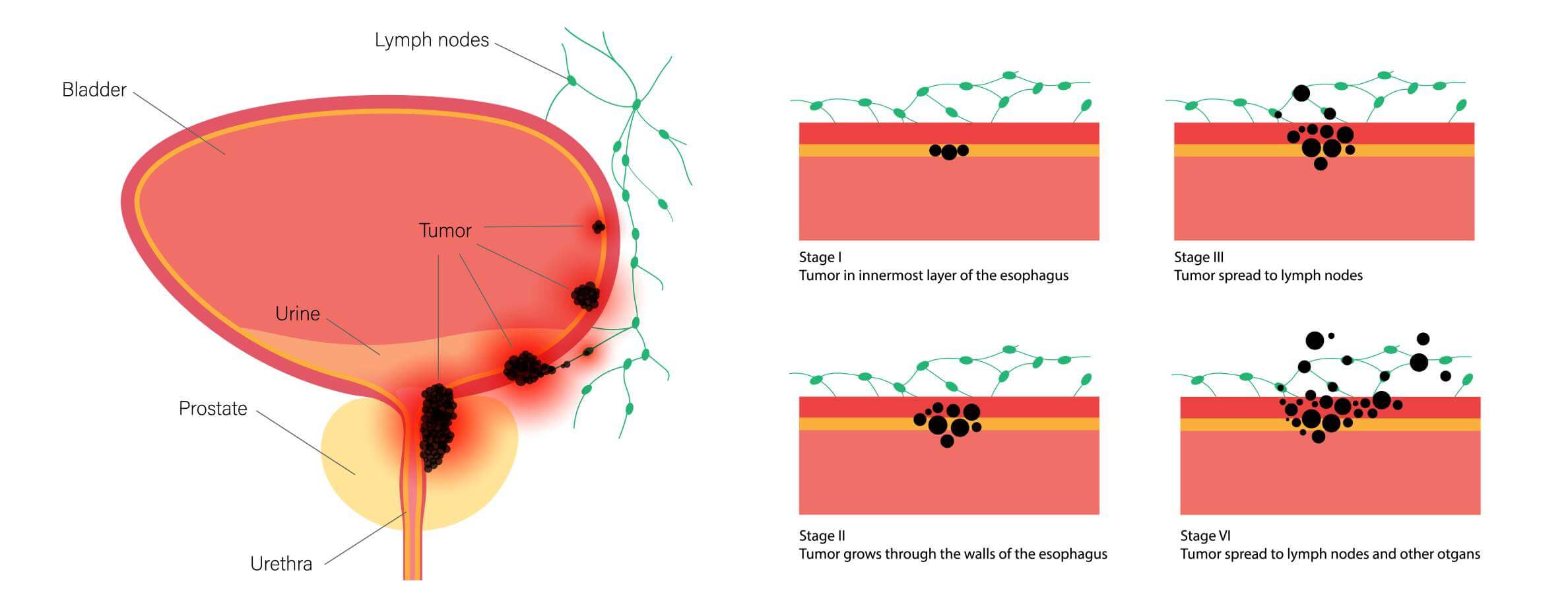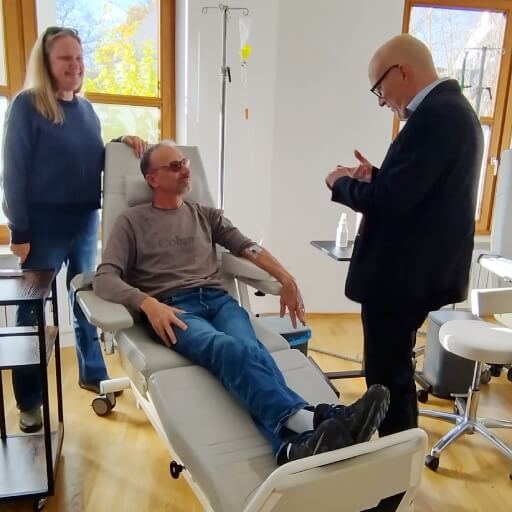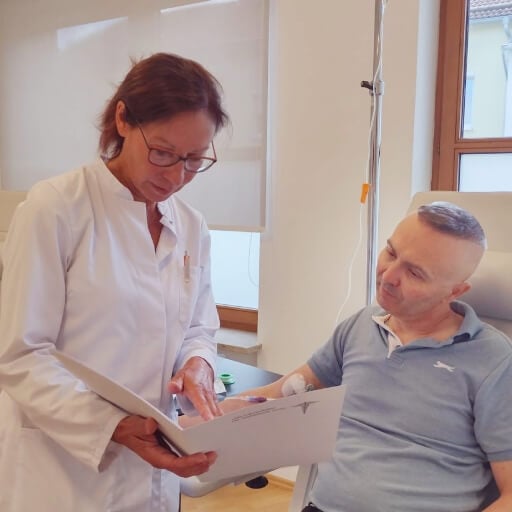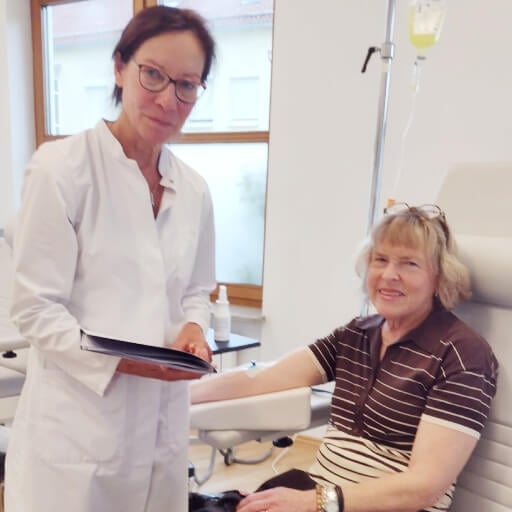Bladder cancer stage 4 is the most advanced form of the disease. It is characterized by the spread of cancer cells beyond the bladder (to distant lymph nodes, liver, lungs and even bones). According to statistics bladder cancer is among the most common malignancies worldwide with an estimated 573,000 new cases diagnosed annually and over 200,000 deaths attributed to the disease [1].
At this stage the condition is considered metastatic. This can make treatment more challenging and survival rates significantly lower, compared to earlier stages. For example, the American Cancer Society reports that the 5-year cancer bladder survival rate is approximately 5-10% depending on factors (treatment response and overall health) [2]. However the life expectancy for stage 4 bladder cancer can be as short as a few months if left untreated.
Unfortunately thousands of patients face this difficult diagnosis. They should not despair, as specialized medical expertise has made a major difference in their treatment journey. Currently, experienced oncology teams can provide patients with personalized treatment approaches. By doing so they can offer improved outcomes even in advanced stages of bladder cancer.
Standard Treatment Methods for Stage IV Bladder Cancer
Treatment for stage 4 bladder cancer typically focuses on controlling tumor growth and alleviating symptoms ー one of the main objectives is to prolong survival.
Chemotherapy can be used to slow the progression of the disease. Many patients with stage 4 bladder cancer are ineligible for certain regimens (due to kidney dysfunction or other underlying health conditions). In such cases newer treatments may be considered.
Radiation therapy can often be used as a palliative treatment to relieve stage 4 bladder cancer symptoms (pain, bleeding, urinary obstruction and others). Patients should understand, that this approach does not aim to cure cancer but it can significantly improve comfort and quality of life in advanced cases.
Surgical options (including radical cystectomy) are rarely performed at stage 4 due to the widespread nature of the disease. The reality is, that the presence of metastases often makes surgery non-curative and more invasive than beneficial.
Palliative care is a crucial treatment component of bladder cancer stage 4 ー the goal is to help patients cope with the physical and psychological burden of advanced cancer (improve the patient's overall quality of life). It can involve pain management, emotional support and symptom control.
We would like to add that standard treatments discussed above can extend bladder cancer stage 4 survival but they can be associated with significant limitations (toxic side effects, high recurrence rates and limited long-term effectiveness). As a result researchers continue to explore innovative therapies that may offer improved outcomes with fewer adverse effects for end stage bladder cancer patients [3].
Innovative Treatment Methods for Stage 4 Bladder Cancer
As previously mentioned research advances have made it possible to develop new treatment options for stage 4 bladder cancer [4]. Immunotherapy, dendritic cell therapy and transarterial chemoembolization (TACE) are considered some of the most promising strategies ー these alternative approaches demonstrate encouraging results in tumor suppression and survival improvement.
Interventional Radiology for Stage 4 Bladder Cancer
Interventional radiology (IR) can offer several minimally invasive procedures for bladder cancer management. IR strategies can be used in patients with advanced disease or those unsuitable for conventional treatments. These image-guided techniques can provide targeted approaches, that can address both primary tumors and metastatic sites [5]. At the same time they can help preserve organ function and quality of life. IR procedure can deliver treatment directly to cancer sites (with minimal disruption to surrounding tissues). Hence they can offer viable alternatives or valuable complements to traditional treatments.
Thermal ablation can focus on utilizing elevated temperatures to destroy cancer cells. This technique was originally used for tumors in the liver and lung. However, it has shown promise in bladder cancer management as well. Thermal ablation can be beneficial for patients with non-muscle invasive bladder cancer (NMIBC), who are not eligible for surgery. Recent clinical data suggest a recurrence-free rate of up to 75% at one year post-procedure when thermal ablation is combined with other modalities.
Cryoablation can administer subzero temperatures to destroy malignant cells by stimulating ischemia and cellular death. It is widely used in prostate and kidney tumors but is now incorporated into bladder cancer care. It is considered especially beneficial for preserving bladder wall integrity ー this can be crucial for patients with recurrent or multifocal NMIBC. Regarding the research evidence early-phase trials reported progression-free survival of around 80% at 6 months of observation. In addition, this method was found to be associated with minimal impact on urological function.
Prof. Kovács: How Electrochemotherapy Became the Gold Standard for Hard-to-Reach Tumors
Electrochemotherapy (ECT) can utilize electrical current with localized chemotherapy injection to increase drug uptake within the tumor. In research, ECT has demonstrated significant clinical benefit for bladder cancer metastases, especially those affecting the pelvic wall or surrounding soft tissues.

Recent evidence suggests that ECT can contribute to the reduction of the tumor and improved local disease control in over 70% of lesions. Moreover this approach can strengthen the immune response. As such it can be used as a complementary part alongside stage 4 bladder cancer immunotherapy in advanced and metastatic bladder cancer.
Transarterial chemoembolization (TACE) can be used to treat advanced cancers. This approach can deliver high-dose chemotherapy directly into the tumor, while simultaneously blocking its blood supply (also it can reduce tumor growth and limit systemic toxicity) [6]. TACE can be viewed as a safer and more localized alternative to traditional chemotherapy (even for those struggling with stage 4 metastatic urothelial carcinoma).
Overall TACE is FDA-approved for liver cancer. Recent clinical trials are now exploring its effectiveness in treating stage 4 bladder cancer. They have demonstrated promising results. Studies report tumor response rates up to 60% which is significantly higher than traditional chemotherapy. Moreover, patients who undergo TACE in combination with immunotherapy or radiation have shown extended survival (with some living beyond three years post-diagnosis). In addition, TACE has lower toxicity which is why it can be especially beneficial for patients who cannot tolerate systemic chemotherapy.
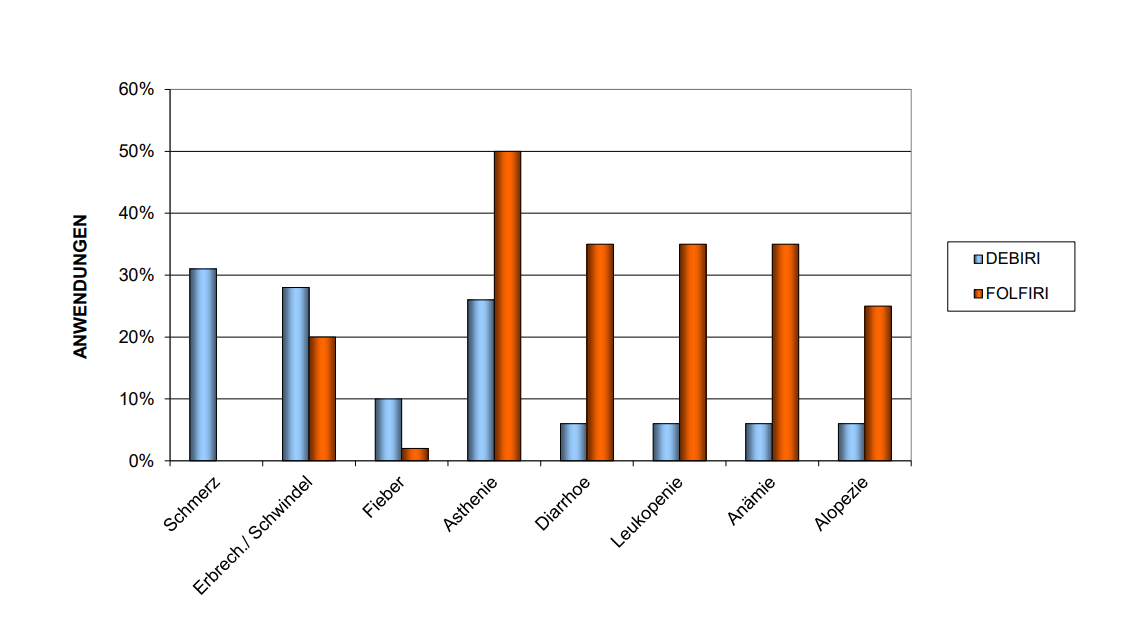
**DEBIRI = TACE, FOLFIRI = IV therapy; with DEBIRI, 90% of the patients have improved quality of life for 32 weeks
To learn more about this treatment, we invite you to watch an interview with Professor Attila Kovács, a renowned radiologist and oncologist specializing in chemoembolization. In the interview, Professor Kovács explains how TACE works, its advantages over standard treatments, and along with expert insights on the future of interventional oncology.
Prof. Kovács: Why Interventional Oncology Should Be the Fourth Pillar of Cancer Care
Dendritic Cell Therapy for Stage 4 Bladder Cancer
Dendritic cell therapy is an advanced form of immunotherapy. It can strengthen the body's ability to detect and destroy stage four bladder cancer. The discovery of dendritic cells was recognized with the Nobel Prize in Physiology or Medicine in 2011. These are immune cells responsible for presenting cancer antigens to T cells and producing strong immune response. Clinical studies have shown, that dendritic cell therapy can improve bladder cancer metastasis survival rates (especially when combined with standard treatments). It can cause minimal side effects, because it works through body's natural immune mechanisms.
We would like to recommend our readers watch an interview with Professor Frank Gansauge. He is an expert in immunotherapy and dendritic cell therapy (with over two decades of experience). In the interview he explains how dendritic cells act as the "officers" of the immune system. He also presents real patient success stories, that demonstrate the therapy's effectiveness in extending survival and improving quality of life.
Expert Insights from Prof. Gansauge: The Power of Dendritic Cell Therapy in Cancer Treatment
Immunotherapy for Stage 4 Bladder Cancer
Immunotherapy has changed how bladder cancer stage 4 treatment is currently approached. This method can utilize the body's immune system to attack cancer cells. Most widely used approaches involves immune checkpoint inhibitors (ICIs) which block proteins, that cancer cells use to evade immune detection [7]. Clinical trials have shown, that ICIs can significantly extend survival, improve quality of life. Some patients (particularly those, whose tumors express high levels of PD-L1) can achieve long-term remission [8]. Immunotherapy can also be combined with chemo or targeted therapies (for enhanced effectiveness). However it is not suitable for all patients due to risk of immune-related side effects (inflammation of healthy tissues and others). Nevertheless this strategy can offer improved outcomes with fewer severe side effects for those with terminal bladder cancer.
Comparative Statistical Analysis of Stage 4 Bladder Cancer Treatments
When patients evaluate stage 4 bladder cancer treatment options, they should consider response rates, duration, costs, and overall survival benefits. The table below compares standard and innovative treatments. We hope that it can help patients and caregivers make informed decisions.
| Characteristics/Therapy type | 2-Year Survival Rate | Response Rate | Duration | Side Effects |
|---|---|---|---|---|
| Standard Treatment | ~25% for advanced cancer | Less than 10% | Several cycles | Severe (nausea, fatigue, hair loss, immunosuppression, skin irritation) |
| Innovative Methods | ~60% for advanced cancer | 45-65% | Up to 4 sessions | Mild (localized discomfort) |
Treatment Costs
| Treatment Method | GERMANY* | GB | USA |
|---|---|---|---|
| Standard Treatment | €80,000 - €150,000 full course | €90,000 - €165,000 full course | €100,000 - €180,000 full course |
| Innovative Methods | €25,000 - €60,000 full course | €70,000 - €120,000 full course | €100,000 - €150,000 full course |
*The costs listed above are approximate and can vary significantly depending on the tumor type, stage, individual treatment plan, healthcare provider, and country of treatment. Some therapies may also involve multiple sessions or be combined with other treatments, which can influence both cost and duration.
Yehia's Journey with Bladder Cancer Treatment
Yehia Mahmoud Hanafy Ibrahim (Egypt) received a stage 4 bladder cancer diagnosis. Despite this, he did not despair. Instead, he decided to seek treatment at the Frankfurt clinic after stage 4 bladder cancer CT scan showed that his condition had progressed.
Yehia turned to biological medicine and immunotherapy. Before undergoing additional treatment Yehia began with immune system enhancement program which helped strengthen his body's natural defenses. This integrative approach combined targeted immunotherapy with chemo sessions. The goal was to ensure that Yehia's body could tolerate the treatment (while maximizing its effectiveness).
Over the following months Yehia experienced a significant reduction in tumor size and improved overall health. He also felt relief from severe symptoms of stage 4 bladder cancer (pain and urinary obstruction). Moreover his energy levels increased. He was able to return to daily activities that once seemed impossible.
Today Yehia is grateful that he had the opportunity to access bladder cancer advanced treatments that have given him more time and a better quality of life.

A Medical Journey: Every Step of the Way With Booking Health
Finding the best treatment strategy for your clinical situation is a challenging task. Being already exhausted from multiple treatment sessions, having consulted numerous specialists, and having tried various therapeutic interventions, you may be lost in all the information given by the doctors. In such a situation, it is easy to choose a first-hand option or to follow standardized therapeutic protocols with a long list of adverse effects instead of selecting highly specialized, innovative treatment options.
To make an informed choice and get a personalized cancer management plan, which will be tailored to your specific clinical situation, consult medical experts at Booking Health. Being at the forefront of offering the latest medical innovations for already 12 years, Booking Health possesses solid expertise in creating complex cancer management programs in each case. As a reputable company, Booking Health offers personalized stage 4 bladder cancer treatment plans with direct clinic booking and full support at every stage, from organizational processes to assistance during treatment. We provide:
- Assessment and analysis of medical reports
- Development of the medical care program
- Selection of a suitable treatment location
- Preparation of medical documents and forwarding to a suitable clinic
- Preparatory consultations with clinicians for the development of medical care programs
- Expert advice during the hospital stay
- Follow-up care after the patient returns to their native country after completing the medical care program
- Taking care of formalities as part of the preparation for the medical care program
- Coordination and organization of the patient's stay in a foreign country
- Assistance with visas and tickets
- A personal coordinator and interpreter with 24/7 support
- Transparent budgeting with no hidden costs
Health is an invaluable aspect of our lives. Delegating management of something so fragile yet precious should be done only to experts with proven experience and a reputation. Booking Health is a trustworthy partner who assists you on the way of pursuing stronger health and a better quality of life. Contact our medical consultant to learn more about the possibilities of personalized treatment with innovative methods for metastatic bladder cancer with leading specialists in this field.
Cancer Treatment Abroad: Patient Experiences with Booking Health
Frequently Asked Questions of Our Patients About Stage 4 Bladder Cancer
Send request for treatmentStage 4 bladder cancer is the most advanced stage of the disease (it is considered metastatic). This means that cancer has spread beyond the bladder to distant lymph nodes, bones, liver or lungs.
Stage 4 bladder cancer is not typically curable but treatment can prolong survival and improve quality of life. In some cases advanced therapies have led to long-term remission. The goal of treatment is to control cancer growth, manage symptoms and extend life expectancy.
Common symptoms of stage 4 bladder cancer include blood in urine (hematuria), frequent or painful urination, lower back or pelvic pain, unintentional weight loss, fatigue and weakness, swelling in the legs and bone pain (if stage 4 bladder cancer spread to bones).
- Stage 1-2: Cancer is confined to the bladder lining or muscle.
- Stage 3: Cancer has spread beyond the bladder wall to surrounding tissues.
- Stage 4: Cancer has spread to distant organs (lungs, liver, bones) making it significantly harder to treat.
Life expectancy for stage 4 bladder cancer is typically 3-6 months if the disease is left untreated (depending on how fast the cancer spreads). Aggressive treatment can extend survival significantly.
Stage 4 bladder cancer is considered terminal in most cases. Newer treatments have improved survival rates and quality of life. In fact some patients can live years with the right combination of therapies.
When it comes to stage 4 bladder cancer patients can expect progressive symptoms (increased pain, difficulty urinating and others), regular medical interventions (chemotherapy, immunotherapy, palliative care and others), possible complications (e.g., infections, organ dysfunction, or fluid buildup in the abdomen) and emphasis on symptom management and improving quality of life.
Traditional treatments for stage 4 bladder cancer include chemotherapy, radiation therapy for symptom relief, surgical options and palliative care for comfort. Advanced treatment options include immunotherapy, dendritic cell therapy and transarterial chemoembolization (TACE).
Standard treatment for stage 4 bladder cancer can offer median survival of ~12-18 months. In contrast newer treatments (e.g., immunotherapy and targeted therapy) can extend survival to several years especially for patients who respond well.
Several new treatments for stage 4 bladder cancer are being researched and implemented. These include immunotherapy, dendritic cell therapy, TACE (transarterial chemoembolization), targeted therapy and clinical trials.
For stage 4 bladder cancer, the 2-year survival rate averages around 25% with standard chemotherapy or radiation therapy. However, innovative treatments (e.g., TACE, dendritic cell therapy, and immunotherapy) can improve this figure to up to 60%.
The response rate for conventional stage 4 bladder cancer treatments is generally below 10%. On the other hand, innovative options (e.g., TACE or electrochemotherapy) achieve 45-65%.
Standard therapies for stage 4 bladder cancer can often involve multiple cycles of chemotherapy or radiation over several months. In contrast, innovative treatments (e.g., interventional radiology or dendritic cell therapy) are typically completed in up to four sessions.
Traditional stage 4 bladder cancer treatments may cause severe side effects, including nausea, fatigue, and immune suppression. In turn, modern innovative therapies lead to mild, localized discomfort, in general.
At stage 4 bladder cancer can cause discomfort and urinary issues (that affect daily life). Interventional radiology (can shrink tumors), dendritic cell therapy (trains the immune system to recognize cancer cells) and immunotherapy (helps the body fight remaining disease) give patients more control over symptoms.
The best hospitals focus on guiding patients through every step; in Germany specialized centers combine imaging, minimally invasive procedures and immune-based therapies and are considered the best in the world.
Choose treatment abroad and you will for sure get the best results!
Authors:
This article was edited by medical experts, board-certified doctors Dr. Nadezhda Ivanisova, and Dr. Bohdan Mykhalniuk. For the treatment of the conditions referred to in the article, you must consult a doctor; the information in the article is not intended for self-medication!
Our editorial policy, which details our commitment to accuracy and transparency, is available here. Click this link to review our policies.
Sources:
[1] American Cancer Society. Survival Rates for Bladder Cancer. https://www.cancer.org/cancer/types/bladder-cancer/detection-diagnosis-staging/survival-rates.html
[2] Jakub Dobruch, Maciej Oszczudłowski. Bladder Cancer: Current Challenges and Future Directions. Medicina 2021, 57(8), 749; https://doi.org/10.3390/medicina57080749. Submission received: 16 May 2021 / Revised: 18 July 2021 / Accepted: 20 July 2021 / Published: 24 July 2021 [DOI]
[3] Domenico Galati, Serena Zanotta. Dendritic Cell and Cancer Therapy. Int. J. Mol. Sci. 2023, 24(4), 4253; https://doi.org/10.3390/ijms24044253. Submission received: 8 February 2023 / Revised: 13 February 2023 / Accepted: 16 February 2023 / Published: 20 February 2023 [DOI]
[4] Xinzi Hu, Guangzhi Li, Song Wu. Advances in Diagnosis and Therapy for Bladder Cancer. Cancers 2022, 14(13), 3181; https://doi.org/10.3390/cancers14133181. Submission received: 24 May 2022 / Revised: 19 June 2022 / Accepted: 24 June 2022 / Published: 29 June 2022 [DOI]
[5] Liang Liu, Haibo Yuan, Qiang Wang, Chuangui Li. Effects of Different Organ Metastases on the Prognosis of Stage IV Urothelial Carcinoma of the Bladder. J Oncol. 2022 Nov 2:2022:8594022. doi: 10.1155/2022/8594022. eCollection 2022. [DOI]
[6] Jianyang Peng, Zhicheng Weng, Chunsheng Zhang at al. Analysis of prognostic factors in patients diagnosed with bladder cancer complicated by hemorrhage treated by drug-eluting bead embolization. Transl Androl Urol. 2023 Nov 30;12(11):1697-1707. doi: 10.21037/tau-23-506. Epub 2023 Nov 9. [DOI]
[7] T. Powles, J. Bellmunt, E. Comperat at al. Bladder cancer: ESMO Clinical Practice Guideline for diagnosis, treatment and follow-up. Ann Oncol. 2022 Mar;33(3):244-258. doi: 10.1016/j.annonc.2021.11.012. [DOI]
[8] Mikołaj Wołącewicz, Rafał Hrynkiewicz, Ewelina Grywalska at al. Immunotherapy in Bladder Cancer: Current Methods and Future Perspectives. Cancers (Basel). 2020 May 7;12(5):1181. doi: 10.3390/cancers12051181. [DOI]
Read:
The treatment of stage 4 bladder cancer in Germany
Immunotherapy treatment for bladder cancer in Germany
Top 10 Leading Oncology Hospitals for Cancer Treatment in Germany
Article menu:
- Standard Treatment Methods for Stage IV Bladder Cancer
- Innovative Treatment Methods for Stage 4 Bladder Cancer
- Comparative Statistical Analysis of Stage 4 Bladder Cancer Treatments
- Yehia's Journey with Bladder Cancer Treatment
- A Medical Journey: Every Step of the Way With Booking Health
- Frequently Asked Questions of Our Patients About Stage 4 Bladder Cancer
Don't know where to start?
Contact Booking Health